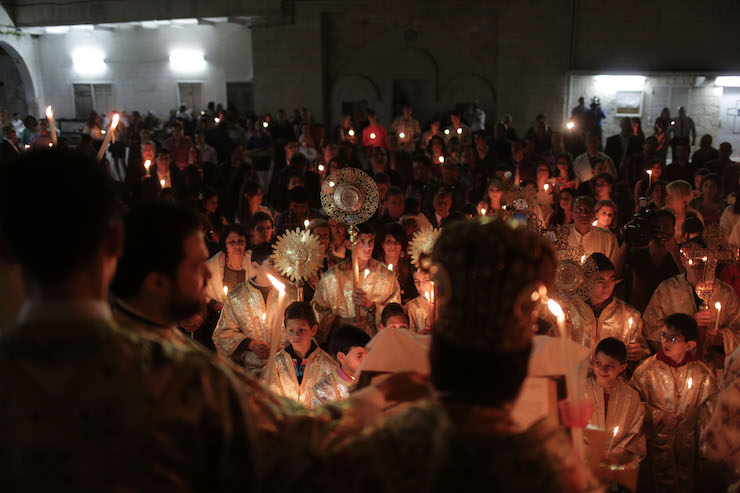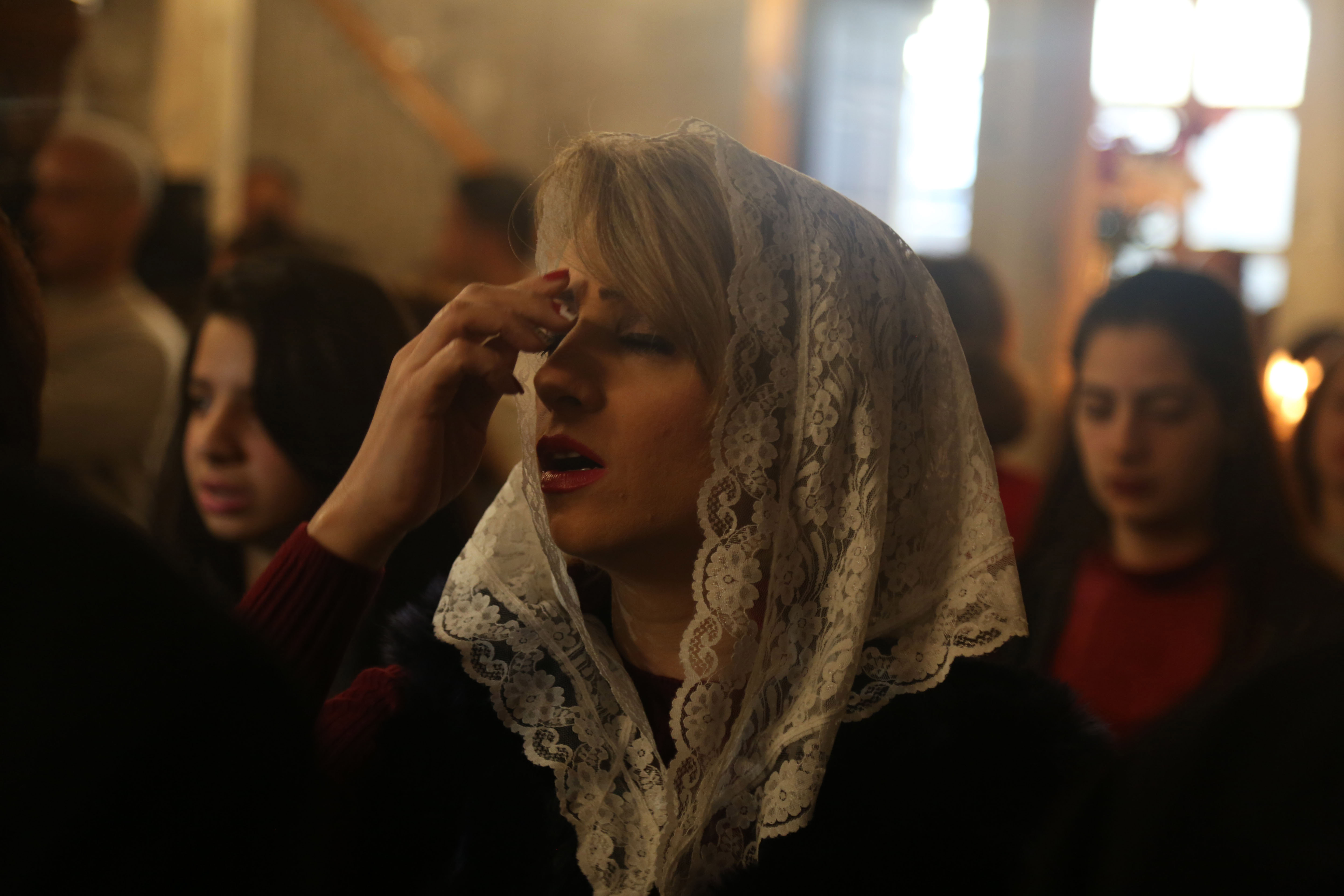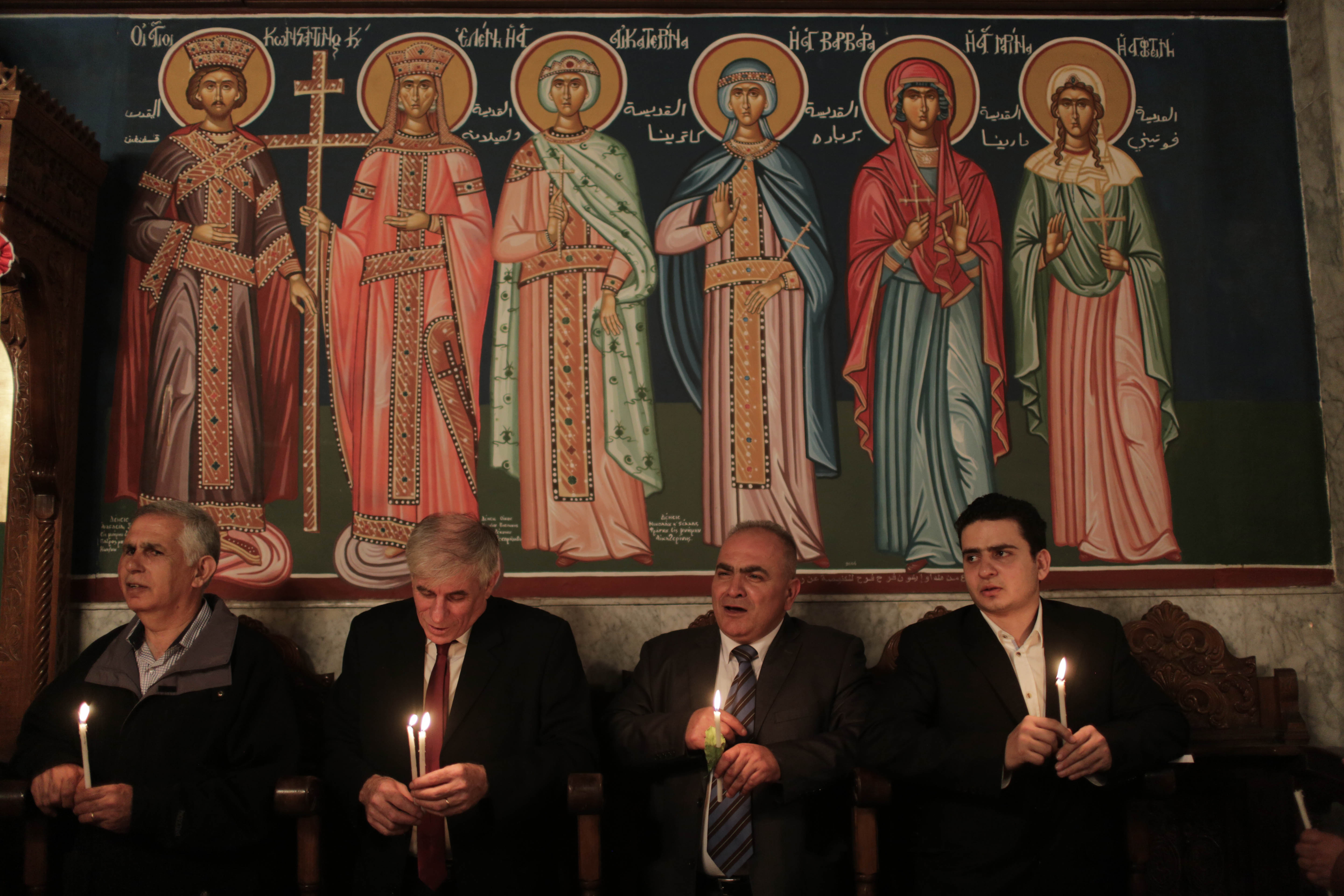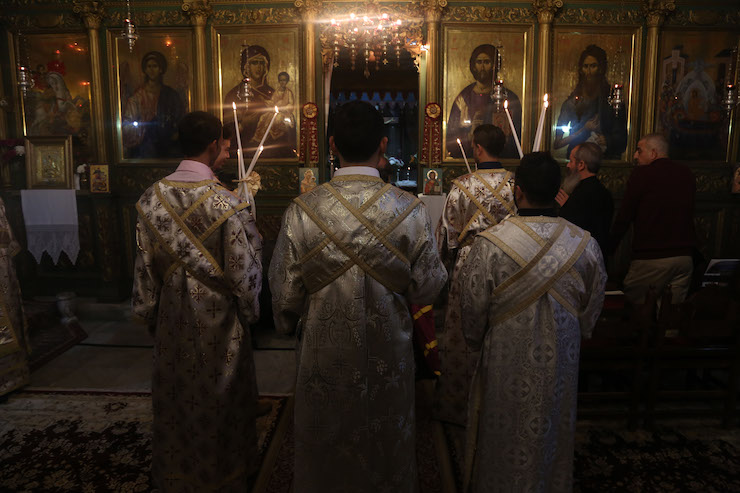In an unprecedented decision, Israeli authorities are denying hundreds of Palestinian Christians the right to travel to Jerusalem for the holiday, while barring all movement between the West Bank and Gaza.

Thousands of Christian pilgrims from all over the world are expected to travel to Jerusalem for Easter celebrations. For Christian Palestinians who live no more than hours away from the holy city, however, holiday plans are determined by the whims of the Israeli army. This year, in an unprecedented decision, the army is denying movement for hundreds of Palestinians and barring all movement between the West Bank and Gaza.
The Israeli army limited the holiday travel quota to 200 Christians from Gaza who are over 55, and only for travel outside of Palestine-Israel. Only 120 of the 1,100 Christians in Gaza meet this arbitrary requirement. Palestinians who were planning on visiting the holy sites or their families in the West Bank and Israel, already a rare occasion, will not be able to do so.
“I’ve been applying for permits over the past three years, but nothing has come out of it,” said Samir Abu Daoud, 65, from Gaza, who has a son and grandchildren in Ramallah. Although he meets Israel’s criteria for travel, he has yet to hear back regarding his permit request.
While the army has allocated twice the quota for Palestinians in the West Bank — who will be allowed to travel to Israel and Jerusalem — this only allows approximately one percent of the Christian population there to leave for the holiday. They are not allowed to visit family members in Gaza.
“Imposing such sweeping restrictions on movement cannot be justified by security needs,” said Miriam Marmur, a media coordinator with Gisha, an Israeli rights group that focuses on freedom of movement in and out of Gaza. The decision is based on political considerations, added Marmur, and the limitations are part of Israel’s “separation policy,” which seeks to widen the divide between geographically disconnected Palestinian communities.

“Israel is increasingly restricting movement between Gaza and the West Bank so as to deepen the separation between Palestinians torn between parts of the occupied Palestinian territory, and by doing so, advance and legitimize its annexation of the West Bank,” Gisha wrote in a statement this week.
Contacted for an explanation, the Israeli army’s “Coordinator of Government Activities in the Territories” (COGAT) — the Israeli military body responsible for administering the occupation and Gaza siege — referred +972 Magazine to the Prime Minister’s Office, which cited security recommendations as the reason for the decision.
There are an estimated 400,000 Palestinian Christians worldwide, most of whom are refugees who either fled or were expelled by Israeli forces during the 1948 Nakba and now live outside Palestine and Israel. Around 123,000 are citizens of Israel, and 50,000 or so more live in the occupied Palestinian territories.

While Israel officially retreated from Gaza in 2005, it has placed the strip under a strict blockade, controlling many aspects of life there, including movement of people and goods. Palestinians there can travel in and out in one of two ways: through the Rafah Crossing with Egypt, or the Erez Crossing with Israel. Until recently, Egypt would only open Rafah intermittently, and in March, for the first time since December 2014, it allowed Muslims from Gaza to travel to Mecca for the Umrah pilgrimage through Rafah.
According to Gisha, COGAT was provided with a list of people who seek to leave Gaza for Easter already last month. The army, however, only announced a few days ago the number of people — although not who — it will allow to travel during the holiday, denying them the opportunity to challenge those decisions in court.
In 2018, the Israeli army approved 500 travel permits for Easter, also limited to people over the age of 55. Ahead of Christmas it handed out 590 permits, but with no age restrictions. In 2017, it was 700 permits for both Easter and Christmas, also without limitations on age.
Israel classifies the permits it gives Palestinians to celebrate and worship during major holidays not as part of its obligation to enable religious freedoms or the right to free movement and family life, but as special “goodwill” measures. In contrast, during Jewish and Israeli holidays, the army routinely imposes a closure on Palestinians in the West Bank and Gaza, restricting the free movement of even those who have passed security checks and hold army issued travel and work permits.

While travel permits are a happy occasion for the few who receive it, for the many Palestinians who are denied authorization to move through the Israeli checkpoints and terminals separating the various Palestinian territories, the permit system serves as a method of collective punishment. In November, for example, COGAT warned that it would not issue permits to Palestinians in Gaza with family members who had “overstayed” their travel authorization.
Furthermore, the permit system often splits members of the same family during the holidays, as some are given permission to travel while others are not. “If I get a permit, but my wife does not, there is no way I will leave,” said Abu Daoud.

